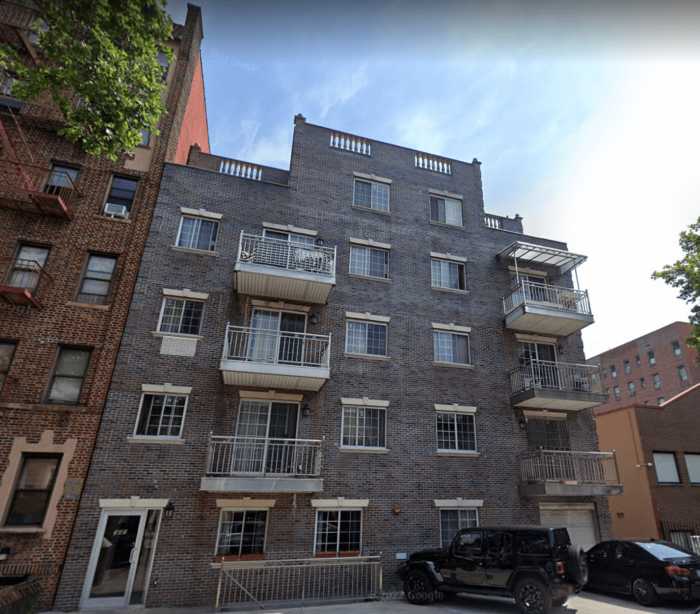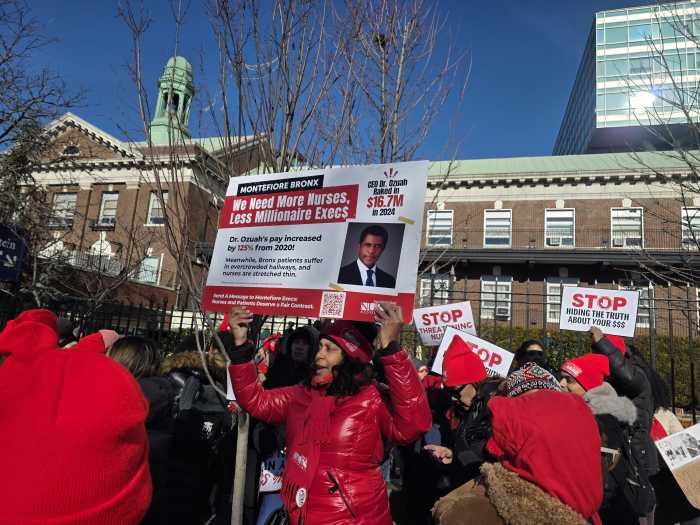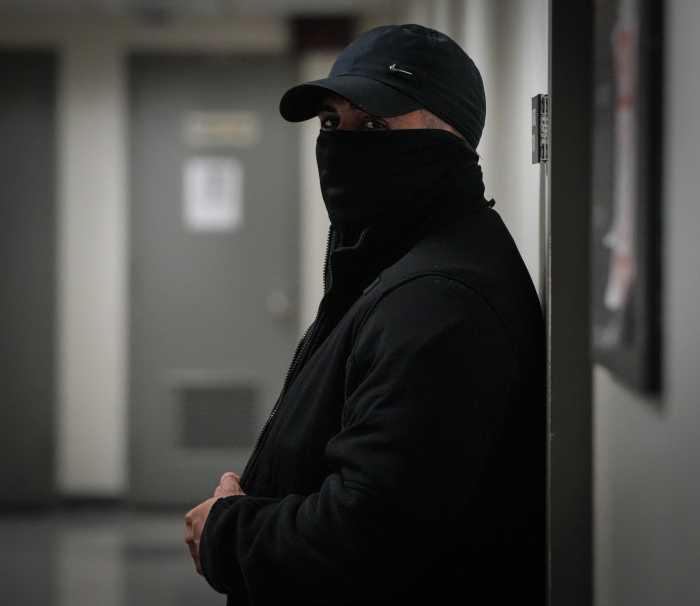BY PAUL SCHINDLER | One year ago this week, two young men, variously reported to be between 16 and 18, were hanged in Mashad, Iran. The initial reporting stated that the youths, Ayaz Marhoni and Mahmoud Asgari, were gay lovers executed for their homosexuality. Quickly, however, human rights groups, most prominently Human Rights Watch (HRW), pointed to evidence that the two may in fact have been punished for the rape of a 13-year-old boy. While condemning the death penalty, particularly for minors, HRW and other groups cautioned against turning a case of child rape into an international gay rights cause célèbre.
A year later, as dozens of cities worldwide, including New York, held vigils July 19 to mark the anniversary of the executions, HRW has hardened in its insistence that there is no support for the charge that the Mashad men were killed because of their sexuality. The International Gay and Lesbian Human Rights Commission (IGLHRC) offers a more agnostic assessment, saying that Iran must clear the air but also warning against inflammatory actions by LGBT activists that could worsen conditions for gays there.
Despite a skeptical stance that has persisted, IGLHRC initially stepped up to organize New York’s July 19 vigil, but in the wake of a scathing memo last week from HRW’s gay rights specialist Scott Long criticizing the accuracy, rhetoric, and motivations of anti-Iran activists, IGLHRC abruptly dropped its sponsorship.
Severity, nature of anti-gay persecution divide rights groups, activists, journalists
Instead, IGLHRC joined HRW and other groups including the Al-Fatiha Foundation, a group for gay Muslims, in hosting a competing forum at New York’s LGBT Community Center, scheduled at the same time as the vigil in front of the Iranian Mission to the United Nations.
In his memo, dated July 10, Long took particular issue with the reporting of Doug Ireland, who has published more than a dozen articles on Iran in Gay City News during the past year. Ireland wrote not only about the Mashad executions, but also conducted detailed interviews with LGBT Iranians, both in-country and in exile, whose stories document what the veteran journalist terms a “pogrom” against gays under the regime of President Mahmoud Ahmadinejad.
Long charged that Ireland had seized “uncritically” on stories such as the Mashad executions and “painted a picture of an ‘intensifying reign of terror’ or ‘pogrom,’” which he said is “unfounded.”
Long’s memo, though, admitted to his “great respect” for Ireland’s work as a journalist, and acknowledged his interviews “with Iranian survivors of torture and abuse which are authentic and compelling.”
Long attributed the global outcry about the Mashad incident and others that followed to efforts by non-LGBT Iranian exile groups that “suddenly had a naïve but attentive audience” for their claims of human rights abuses in their homeland.
Readers of this article should be aware that this editor oversaw the publication of Ireland’s articles and takes full responsibility for them. This story’s preparation included a lengthy telephone interview with Paula Ettelbrick, IGLHRC’s executive director.
Long responded to an email query saying he was “happy to talk,” but raised a concern that Ireland had named an attorney in Iran that an exile group told Gay City News it had engaged to represent two men in Arak, who sources said were gay, scheduled for execution last August. Long charged that naming the attorney put his life in danger. This editor responded that he had never heard about that concern but out of an abundance of caution had now removed the name from the Web, but that in any event the exile group had told the newspaper the attorney’s name and that he had already stepped forward publicly to defend two men who might be gay.
“I’m repeating myself,” Long wrote back. “Gay Iranians aren’t the issue. If the Iranian government assumes a lawyer has links to dissident exile groups, it executes him.” Long said he brought the concern to Ireland at the time, but that in any event the damage would have been “done in less than twelve hours.” Long also said, however, that HRW “concluded it was unlikely the lawyer existed.” At Wednesday’s forum, Long explained that what he saw as this editor’s lack of understanding of his concern was the reason he did not respond further to requests for comment.
Both in his July 10 memo and at the forum, Long alleged that Ireland had used the case of four men hanged in Bandar Abbas, later found to have been executed for the rape of a woman and young girls, as evidence in his case that Iran was engaged in an anti-gay pogrom. In fact, the extent of Gay City News’ reporting on that incident was Ireland’s noting, when the story first surfaced, “the execution of four other men, aged 17 to 23, for unspecified ‘sexual offenses.’ But it has been impossible to confirm these reports.”
Early reports on the Mashad executions last July quickly caught the attention of Peter Tatchell, the head of the militant LGBT rights group Outrage! in London, and was picked up by conservative blogger Andrew Sullivan as well as by Ireland, who posted his first story on his Web site prior to covering the story for Gay City News. Tatchell and Sullivan—but not Ireland—used the term “Islamo-fascist” in describing the Iranian regime, a hawkish formulation that raised red flags among human rights activists unwilling to align themselves with right-wing Western critiques of the Muslim world and Bush foreign policy adventuring (though on that score Tatchell was an unlikely bedfellow).
HRW’s Long soon argued that the initial story from an Iranian government-controlled newswire had been mistranslated, leaving out reference to a 13-year-old rape victim. Another Iranian newspaper, also state-controlled, carried what it said was an interview with the boy’s father. The ensuing controversy was covered in detail—and to Long’s satisfaction—in Richard Kim’s August 5 story for The Nation, available at thenation.com/doc/20050815/kim.
Despite Long’s charge that Ireland was uncritical in accepting the original version of the Mashad executions, in fact Ireland did extensive reporting with sources both inside and outside Iran—trying to learn whether or not the executed youths were gay and lovers, and also whether there was a 13-year-old and if he was sexually assaulted or engaged in consensual behavior with boys who at the time were between two and four years older than he.
Afdhere Jama, an Iranian exile who lives in San Francisco and edits Huriyah, a Web-zine for queer Muslims, told Ireland, “The first day I found out, I called my Iranian contacts from Huriyah. All agreed on the fact that the boys were murdered for being queer… [A] source told me one of the boys’ family members outed the couple.” Jama said the youths had been seen at a gay party in Mashad.
Ireland also contacted the editor of an underground gay newspaper in Tehran by e-mail, who told him his sources said that the rape charge was trumped up. Ireland vetted the credibility of his Tehran source with Janet Afary, an exiled Iranian scholar who is a professor at Purdue University and co-wrote “Foucault and the Iranian Revolution: Gender and the Seductions of Islam” (University of Chicago Press).
Ireland said that Afary confirmed that honor killings, in which a family strikes out at a nonconforming member, such as a gay son, are known to occur. She told Ireland that this could have been the motivation either for one of the youths’ families to out the couple or for the father of a 13-year-old boy who learned his son had engaged in homosexual conduct with two older boys to strike out at them.
Addressing the information Jama provided Ireland, Long wrote, “I have the greatest respect for Afdhere and absolutely no reason to doubt anything he says. However, his [three] sources [in Mashad] have refused to speak to anyone else, including human rights investigators.”
Those who disagree with Long question whether it is he who has been uncritical—in accepting official Iranian accounts of the executions. When the story broke, he sent an unsolicited e-mail to Gay City News saying, “It is reasonably certain they were executed for sexual assault on a 13-year-old” and told Ireland that HRW was “90 percent sure” rape had taken place. Yet, Hadi Ghaemi, the group’s Iran expert, said that certainty was based on one source, a story in the newspaper Qud, controlled by regime supporters. Months later, according to Ireland, Long e-mailed him that the group had additional sources for its view.
Another point Long made in his memorandum last week is that those who believe the Mashad executions were based in homophobia are “imputing a Westernized ‘gay’ identity on these youths,” the suggestion being that a level of cultural insensitivity and naiveté is involved. That perspective was echoed by a number of panelists at the IGLHRC forum Wednesday evening, most passionately by Iranian-American filmmaker Kouross Esmaeli, who voiced harsh criticism of Gay City News reporting about his homeland.
Yet in at least four stories Ireland has written since last September, based on interviews with Iranians still in their homeland or in exile—Amir, a 22-year-old gay exile in Turkey (gaycitynews.com/gcn_438/nexttimeyoullbe.html), Sam, a 28-year-old gay exile in Pakistan (gaycitynews.com/gcn_502/anothergayiraniantorture.html), Mekabiz, a self-described “transsexual man” still living in Mashad (gaycitynews.com/gcn_506/transsexualansstuck.html), and Mani, a 24-year-old gay man living in an Iranian city he was afraid to disclose (gaycitynews.com/ gcn_527/gayandunderground. html)—he has demonstrated there are young people there who talk about their sexual and gender identity in ways many Americans would understand. It is, in part, this increasingly Westernized identity that Iranian authorities use torture and worse to stamp out. This is the reporting Long acknowledged was “authentic and compelling.”
Based on this reporting and other sources who told him so directly, Ireland wrote that Ahmadinejad had stepped up repression of gays when he assumed the presidency last year. The assault on gay Iranians amounts to a pogrom, Ireland concluded. Borrowing the term used to describe the episodic ouster and genocide aimed at Jews throughout European history was bound to stir controversy and clearly some believe more detailed documentation is required.
Long explained his discomfort with the characterization. “Crying wolf is a bad strategy for achieving change,” he wrote last week. “Because if human rights advocates don’t deal in facts instead of speculation, they lose all credibility in future crises… These misrepresentations actually work against the interests of Iranian asylum-seekers… and could play into the hands of the Iranian government if these claims are proven wrong.”
Asked this week whether she saw a marked increase in anti-gay repression since Ahmadinejad took power, Ettelbrick said, “I have no sense of that whatever. Is there an increase in incidents? Peter [Tatchell] and others want to make it out that there is a pogrom and I don’t think we can say that. It may have been going on for a long time.”
Ettelbrick echoed Long’s warning that the human rights abuse brief against Iran not be overstated, and indeed last summer, when the Washington-based Human Rights Campaign sent Condoleezza Rice a letter protesting the Mashad executions, she told The Nation’s Kim, “We are in shock at how distorted this story has become and that we have reached the point where HRC would send a letter to the secretary of state without doing research.”
Asked to explain her group’s abrupt bailout from leadership of the New York July 19 vigil, Ettelbrick voiced concern that the protests worldwide might have an “inflammatory” impact on the Iran situation, creating a link between gay life there and a Western agenda in the regime’s eyes.
“I wanted to make sure that our participation was consistent with our approach,” she explained. “What can we do to be effective? The name of Peter’s group is Outrage! The name of our group is the International Gay and Lesbian Human Rights Commission.”
In response to HRW and IGLHRC suggestions that the July 19 protests might in fact aggravate the situation for Iranian and exiled gays, Ireland pointed to a letter published on the Web site of the internationally based Persian Gay and Lesbian Organization (PGLO), a group widely praised at the IGLHRC forum, that was signed by a range of groups including the underground Tehran publication that Ireland contacted and “Homosexual Bloggers in Iran.” The statement thanked activists worldwide for turning out for the vigils.
The PGLO statement does not speak to the question of whether repression has gotten worse in the past year, instead pointing to the 27 years since Ayatollah Khomeini’s Islamic Revolution inaugurated executions for homosexual acts in Iran. The communication also makes clear the signers’ “opposition to any military offensive against our motherland.”
The geopolitical context of this debate of course is key—in fact, the white elephant in the room. The manifesto calling for vigils worldwide on July 19 clearly stated opposition to military intervention in Iran. Yet, HRW and several of the forum’s panelists warned that Western gay calls for change in Iran could well dovetail with Bush administration goals of whipping up an Iraq-style intervention frenzy aimed at Iran. A sociology Ph. D. student who would not reveal her last name for safety reasons, and whose first name this newspaper will not publish, said that even critics of Bush foreign policy in America are inevitably part of America’s “missionary” ethos, warning them “not to make a precarious situation worse by a naïve call for gay rights.”
For his part, Long, in his memo last week, charged, “The tactics and rhetoric of the organizers behind the demonstrations have often been, from my perspective, problematic or even misleading.” He faulted not only Ireland’s reporting, but also noted the participation of Michael Petrelis, a controversial AIDS activist known for his militancy and for his work in recent years with right-wing Republicans in Congress to defund HIV prevention groups. Long also alluded to e-mails he received and listserve postings he read that charged him and others with being “childish,” “jejune,” “liars,” and “sectarian apologists for the Islamic Republic of Iran.”
































